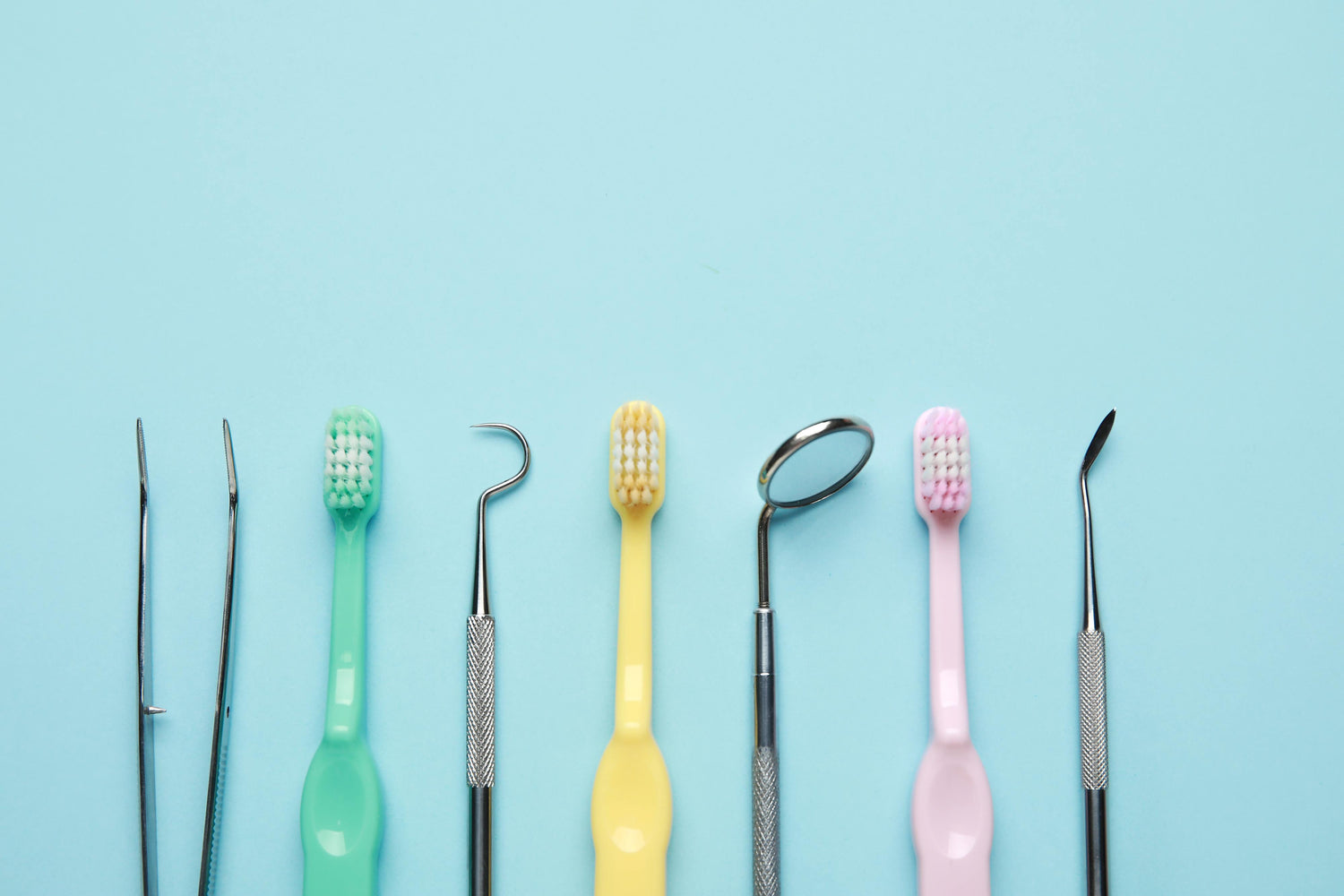World Oral Health Day is celebrated annually on March 20th. This year's theme - A Happy Mouth… A Happy Body - emphasizes the connection between a healthy mouth and overall health.
Dental and oral bacteria are linked to many chronic diseases in the body. Thorough brushing and regular dental visits can also prevent strokes (1).
According to statistics from the World Stroke Organization (WSO), over 13 million people suffer from strokes each year, and one in four people will have a stroke in their lifetime. Surprisingly, up to 90% of these cases could be prevented by making lifestyle changes such as adopting a healthier diet, increasing regular exercise, quitting smoking, and even improving regular oral hygiene.
Medical Licentiate Olli Patrakka examined the significance of oral bacteria, especially viridans group streptococci, in the development of strokes in his recent doctoral dissertation in forensic medicine at the University of Tampere. Although these bacteria are normal mouth microbes, they can cause serious illnesses such as heart valve inflammation when they enter the bloodstream. For example, they can enter the bloodstream through inflamed gums while brushing teeth.
- These bacteria attach to the tooth's surface in the mouth and initiate the process, leading to the formation of dental plaque. We hypothesize that a similar phenomenon occurs when bacteria that enter the bloodstream during, for example, dental procedures or dental infections travel into the walls of the arteries. This may accelerate the development of both strokes and atherosclerosis, explains Patrakka.
Poor oral hygiene is a risk factor for strokes
According to Patrakka, dental bacteria can be found in the blood clots of stroke patients in about four out of five cases. A similar result has yet to be reported.
Blood clots from stroke patients treated in Tampere were collected for the study during acute care. In addition, samples from patients suffering from symptomatic carotid artery stenosis were used as tissues for endarterectomy.
Epidemiological studies have shown that poor oral hygiene is an independent risk factor for strokes.
- The results of my study suggest that the connection could be explicitly explained through the inflammatory reaction caused by dental bacteria in atherosclerotic plaques.
The findings of the dissertation are significant as they open up new opportunities to develop the treatment of stroke patients.
Patrakka estimates that the development of a vaccine may also be possible.
So, what practical implications can findings like these have on treating stroke patients and healthcare practices?
Although further research is needed to determine causality, the study supports the view that oral health must be taken care of, especially in those at risk of strokes.
According to Patrakka, the inflammation caused by streptococcal bacteria in the mouth should always be considered in stroke prevention as part of regular dental care. Additionally, it is essential to investigate the potential benefits of timely antimicrobial treatment or bacterial vaccines in the future.
Periodontitis is the root cause of many ailments
Studies show dental plaque bacteria are responsible for about 95 per cent of oral diseases. One of the most common oral diseases is periodontitis, a severe gum disease caused by dental plaque. Early signs of this disease include red gums, gum bleeding, and bad breath.
In patients with periodontitis, the fibres that attach the tooth to the gum are destroyed, forming a periodontal pocket between the gum and the tooth. This pocket may expand around the entire tooth. If the infection is not treated promptly and oral hygiene is not improved, it can progress to destroy more extensively the supporting tissues of the teeth and, ultimately, the jawbone.
Thorough oral hygiene is crucial for the prevention and treatment of oral infections. According to the Finnish Institute for Health and Welfare (THL), more and more people in Finland brush their teeth at least twice a day, but there are still deficiencies in self-care. While about 80% of women brush their teeth at least twice a day, the corresponding figure for men is 53%.
Deficiencies in oral hygiene are directly reflected in the statistics of oral infectious diseases. For example, gum diseases are worryingly common in the age group of 30-44, both in women (43%) and men (57%).
Thorough mechanical brushing of teeth and cleaning of the interdental spaces are crucial because even asymptomatic oral inflammations can affect the body's overall health.
- According to statistics, individuals with healthy mouths live longer. Every missing tooth reduces life expectancy. This is talked about far too little, says Tommi Pätilä, a heart and transplant surgeon at HUS New Children's Hospital in Helsinki, Finland.
Pätilä is also one of the developers of the antibacterial Lumoral method. Lumoral is a medical device designed to improve oral hygiene and oral health. The antibacterial oral care method is especially suitable for patients with difficult-to-treat gum diseases such as periodontitis who do not get adequate results from traditional oral hygiene methods such as brushing teeth and cleaning interdental spaces.
The importance of interdisciplinary collaboration
According to Pätilä, collaboration between doctors and dentists is essential and needs to be increased in Finland. Many doctors in Finland already check the oral health status of their patients at their clinics and guide them to further treatment as needed. Diabetes is an excellent example of a disease where the importance of hidden inflammations is generally understood. However, more collaboration is required to expedite many diagnoses and even prevent general diseases.
- The recent medical dissertation at the University of Tampere is significant as it addresses oral health as part of overall body health, says Pätilä.
Olli Patrakka's interest in oral bacteria arose as part of his duties as a pathologist. Has the interest of young doctors in the impact of dental infections on general health increased?
- It hasn't increased, but it should. In the basic medical training I received about five years ago, there was also no discussion of the impact of dental infections on general health. Of course, the topic is still relatively new, but hopefully, awareness and scientific evidence will gradually increase over the years.
Patrakka emphasizes that a general practitioner should know when a dental problem requires a referral to a dentist. This would expedite the treatment of oral infections and potentially support the achievement of balance in the treatment of many general diseases.
- My research contributes to the evidence that the impact of oral health on general health is significant. The blood vessels of the tooth pulp are directly connected to the systemic circulation. Thus bacteria and their metabolites can circulate directly into our bodies if the teeth are not in good condition.

Olli Patrakka. Image: Hanna-Sofia Luoto
References:
Sen S, Giamberardino LD, Moss K, Morelli T, Rosamond WD, Gottesman RF, Beck J, Offenbacher S. Periodontal Disease, Regular Dental Care Use, and Incident Ischemic Stroke. Stroke. 2018 Feb;49(2):355-362. doi: 10.1161/STROKEAHA.117.018990. Epub 2018 Jan 15. PMID: 29335336; PMCID: PMC5780242.
https://trepo.tuni.fi/bitstream/handle/10024/154588/978-952-03-3315-7.pdf?sequence=2&isAllowed=y
Pakarinen S, Saarela RKT, Välimaa H, Heikkinen AM, Kankuri E, Noponen M, Alapulli H, Tervahartiala T, Räisänen IT, Sorsa T, et al. Home-Applied Dual-Light Photodynamic Therapy in the Treatment of Stable Chronic Periodontitis (HOPE-CP)—Three-Month Interim Results. Dentistry Journal. 2022; 10(11):206. https://doi.org/10.3390/dj10110206
Nikinmaa S, Alapulli H, Auvinen P, Vaara M, Rantala J, et al. (2020) Dual-light photodynamic therapy administered daily provides a sustained antibacterial effect on biofilm and prevents Streptococcus mutans adaptation. PLOS ONE 15(5): e0232775. https://doi.org/10.1371/journal.pone.0232775
Nikinmaa S, Moilanen N, Sorsa T, Rantala J, Alapulli H, Kotiranta A, Auvinen P, Kankuri E, Meurman JH, Pätilä T. Indocyanine Green-Assisted and LED-Light-Activated Antibacterial Photodynamic Therapy Reduces Dental Plaque. Dentistry Journal. 2021; 9(5):52. https://doi.org/10.3390/dj9050052



Leave a comment
This site is protected by hCaptcha and the hCaptcha Privacy Policy and Terms of Service apply.